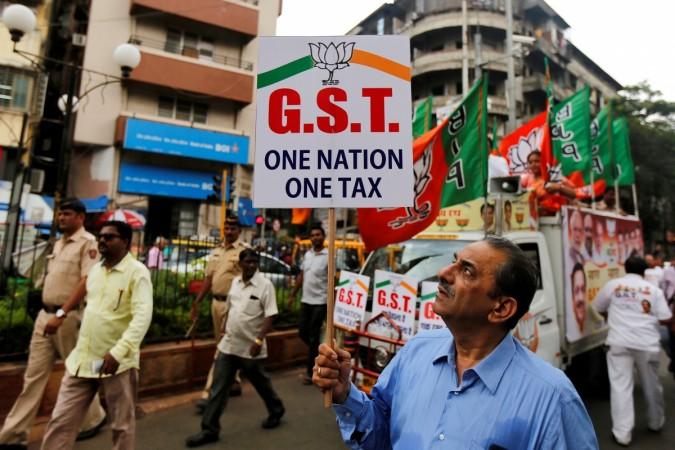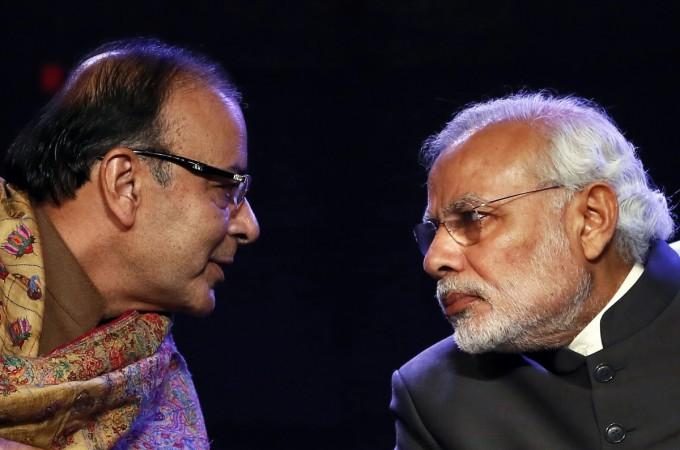The real estate sector is likely to see a massive spurt in buying as Prime Minister Narendra Modi's government has drastically cut the goods and services tax (GST) for under-construction buildings, industry experts say.
The GST Council that Finance Minister Arun Jaitley chaired has reduced the levy on constructions that have not obtained the occupancy certificate to 5 per cent from 12 per cent.
The top indirect taxation regulator also widened the definition of 'affordable housing' and reduced the GST of this category to 1 per cent from 8 per cent. Properties costing up to Rs 45 lakh will be considered as affordable provided the carpet area does not exceed 60 square meters in metro cities and 90 square meters in non-metro cities, according to the council decision.
As the talk of a GST cut has been in the air for some time now, new homebuyers have been deferring their decision, according to industry watchers. The decision coming into force from April 1 when the new financial year begins will help to drive consumption in the sector.
The rate cut and expansion of the affordable housing definition will also spur off-take of housing units in a sector that has been seeing a stagnation over the past few years because of liquidity crunch owing to demonetisation and surge in banks' non-performing assets (NPA) leading to a fall in credit flow.
The Bharatiya Janata Party-led National Democratic Alliance (NDA) government seeking another term in the general election 2019 has been desperate to spur growth in key sectors, especially those contributing to employment generation in the election year.
Coupled with sops to farmers through the Pradhan Mantri Kisan Samman Nidhi Yojana (PM-KISAN) that Modi launched on Sunday, growth in the realty sector is expected to spur economic growth by providing more liquidity. The government hopes to give a new push to its Housing for All by 2022 programme.
Experts believe the GST rate cut in the sector dovetails into the government's efforts to spur growth by infusing more liquidity with the Reserve Bank of India's (RBI) repo rate cut by 25 basis points to 6.25 per cent and the regulator's efforts to ensure transmission of the benefits to banking customers. The real estate sector has been eyeing growth from the interim union budget's announcement of the exemption of notional rent income from the second home of a tax assessee from income tax.
"The reduction of GST on Affordable Housing to 1 per cent is a revolutionary move for Indian real estate," the Economic Times quoted Jaxay Shah, president of realtors' body the Confederation of Real Estate Developers Association of India (Credai) as saying. "This move is a significant triumph for home buyers and will play a huge role in boosting their sentiments."
The Bussiness Standard website cited Abhishek Jain, tax partner at Ernst & Young, as saying the reduced GST is good news for the real estate industry as the earlier higher rates were a bit of deterrent for buyers of under-construction properties.
Though builders have generally welcomed the decision, some say the fact that they cannot claim input tax credit (ITC) on the new GST rates could act as a dampener. Shishir Baijal, chairman and managing director at Knight Frank India, told the website the reduction in GST for under-construction projects is the most decisive move by the council with a clear focus on demand stimulation.

"The move will give the necessary fillip to demand in the under-construction segment, which has been suffering from low sales for the last many quarters. The elimination of input credit tax benefit may hit profitability on the supply side. But the potential demand generation will far outweigh negative aspects, leading to greater sales numbers and revenues."
The GST Council met on Sunday to consider GST rate cut on real estate sector among other after a conference by the video link on February 20 remained inconclusive and several states desired a meeting of the GST Council with the physical presence of GST Council members.















